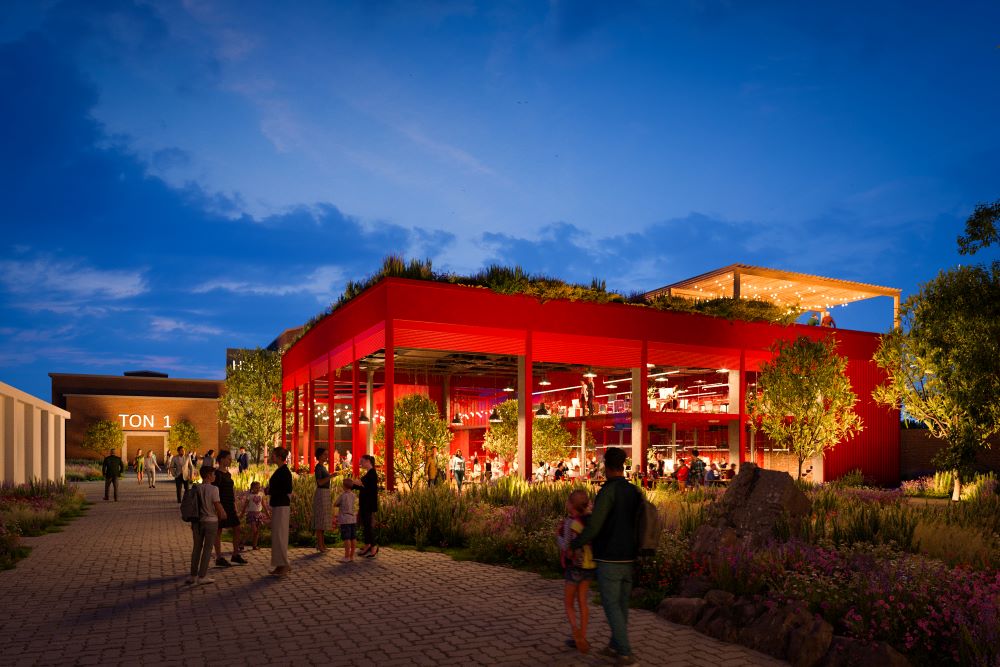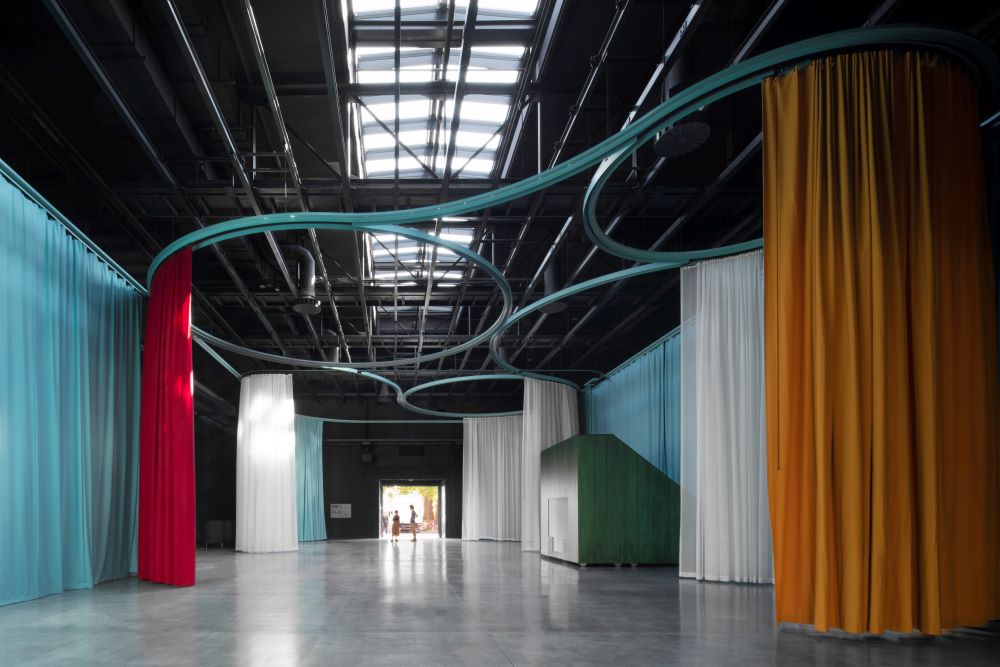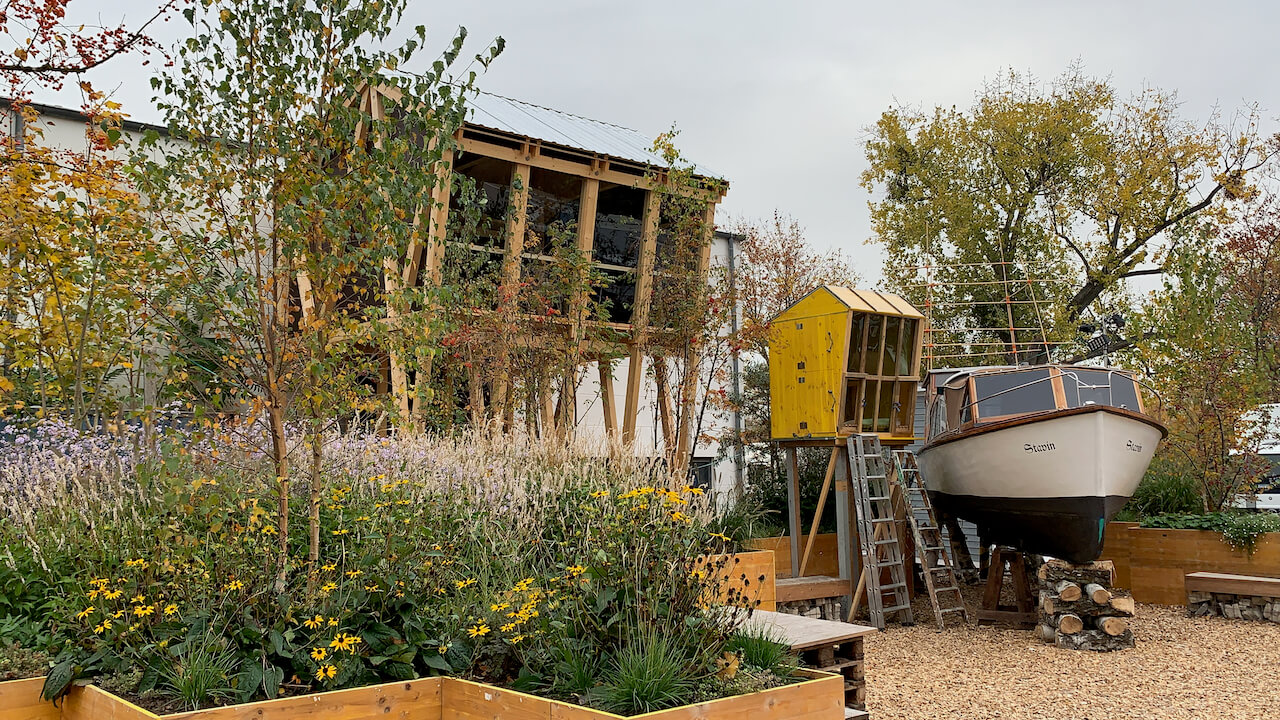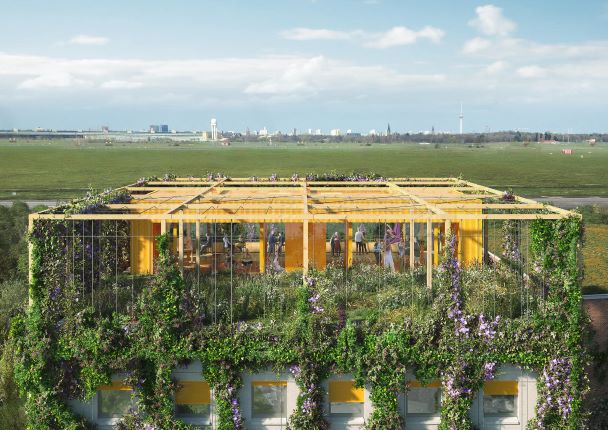ESG in real estate: Atelier Gardens - Fabrix case study
One of the oldest film studios in Europe, Atelier Gardens, Berlin, is being transformed into a campus where flexible work and event spaces connect to nature and the community - a cross-disciplinary home for pioneers of change.
2 minutes to read
This six-acre film studio in Berlin, Germany was the legendary home of German cinema. The Oscar-winning Cabaret was shot here. Even Walt Disney used it. And now it has become a testbed for all the principles that guide Fabrix as a developer and investor, building a community through reuse, flexibility, and reprioritising nature.
The perception of film studios is often one of glamour. And the site certainly has a rich history. But the reality is actually very different – film studios are essentially large sheds, often built pragmatically over time with little or no thought for public realm. And with a transient population of production companies moving in and out of the site with trucks and lorries. Campuses, meanwhile, tend to be siloed around certain sectors – tech, science, education etc.
There was a gap to forge something different here - a creative campus for social and regenerative entrepreneurship.
Who is Fabrix?
Fabrix is an investor and developer that brings value to underutilised and overlooked urban spaces. They place environmental and social impact at the heart of everything they do – demonstrating that urban development can be beneficial to both people and planet. Read more about Fabrix.


Atelier Gardens key facts:
• A sensitive masterplan developed with Dutch architects MVRDV to recalibrate the campus, into a flexible mix of work and event space for organisations with a focus on human and planetary wellbeing. Redundant studio buildings and other existing structures are being repurposed, all without waste leaving the site.
• The project works hard to embed itself in its neighbourhood, forging connections through programs such as theatre clubs for kindergarten children and their parents as well as a local authority hub designed to bring the community together.


• One of the site’s listed, 100-year-old, studio buildings has been transformed into a flexible, state-of-the-art event space through the introduction of an intricate system of overhead lights and curtain railings, whilst preserving its historic character.


• Nature is being gradually healed and reintroduced, utilising a longer-term approach by specifying plants with the ability to thrive in harsh environments, decontaminating the soil over time and avoiding it going to the landfill.


• Circular composting utilises food waste from the restaurant on site and invites local people to bring their food waste, take away the compost they need.
• New uses are being introduced including an extensive refurbishment of dated office buildings to create contemporary workspaces including rooftop gardens and pavilions.
• Other sustainability measures include rainwater collection, water recycling and eco-toilets.
Read about another redevelopment project by Fabrix – Roots in the Sky, London, United Kingdom.